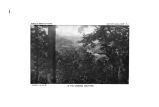| OCR Text |
Show 100 MYTHS OF THE CHEROKEE [ ETH. ANN. 19 afterward a rumor came from the west that they were still living near the base of the Rocky mountains. 1 In 1782 the Cherokee, who had fought faithfully on the British side throughout the long Revolutionary struggle, applied to the Spanish governor at New Orleans for permission to settle on the west side of the Mississippi, within Spanish territory. Permission was granted, and it is probable that some of them removed to the Arkansas country, although there seems to be no definite record of the matter. 2 We learn incidentally, however, that about this peried the hostile Cherokee, like the Shawano and other northern tribes, were in the habit of making friendly visits to the Spanish settlements in that quarter. According to Reverend Cephas Washburn, the pioneer misssionary of the western Cherokee, the first permanent Cherokee settlement beyond the Mississippi was the direct result of the massacre, in 1794, of the Scott party at Muscle shoals, on Tennessee river, by the hostile warriors of the Chickamauga towns, in the summer. As told by the missionary, the story differs considerably from that given by Haywood and other Tennessee historians, narrated in another place. 8 According to Washburn, the whites were the aggressors, having first made the Indians drunk and then swindled them out of the annuity money with which they were just returning from the agency at Tellico. When the Indians became sober enough to demand the return of their money the whites attacked and killed two of them, whereupon the others boarded the boat and killed every white man. They spared the women and children, however, with their negro slaves and all their personal belongings, and permitted them to continue on their way, the chief and his party personally escorting them down Tennessee, Ohio, and Mississippi rivers as far as the mouth of the St. Francis, whence the emigrants descended in safety to New Orleans, while their captors, under their chief, The Bowl, went up St. Francis river- then a part of Spanish territory- to await the outcome of the event. As soon as the news came to the Cherokee Nation the chiefs formally repudiated the action of the Bowl party and volunteered to assist in arresting those concerned. Bowl and his men were finally exonerated, but had conceived such bitterness at the conduct of their former friends, and, moreover, had found the soil so rich and the game so abundant where they were, that they refused to return to their tribe and decided to remain permanently in the West. Others joined them from time to time, attracted by the hunting prospect, until they were in sufficient number to obtain recognition from the Government.* ! See number 107, " The Lost Cherokee." * See letter of Governor Estevan Miro to Robertson, April 20,1783, in Roosevelt, Winning of the West, II, p. 407,1889. 3 See pp. 76- 77. * Washburn, Reminiscences, pp. 76- 79,1869; see also Royce, Cherokee Nation, Fifth Ann. Rep. Bureau of Ethnology, p. 204,1888. |































































































































































































































































































































































































































